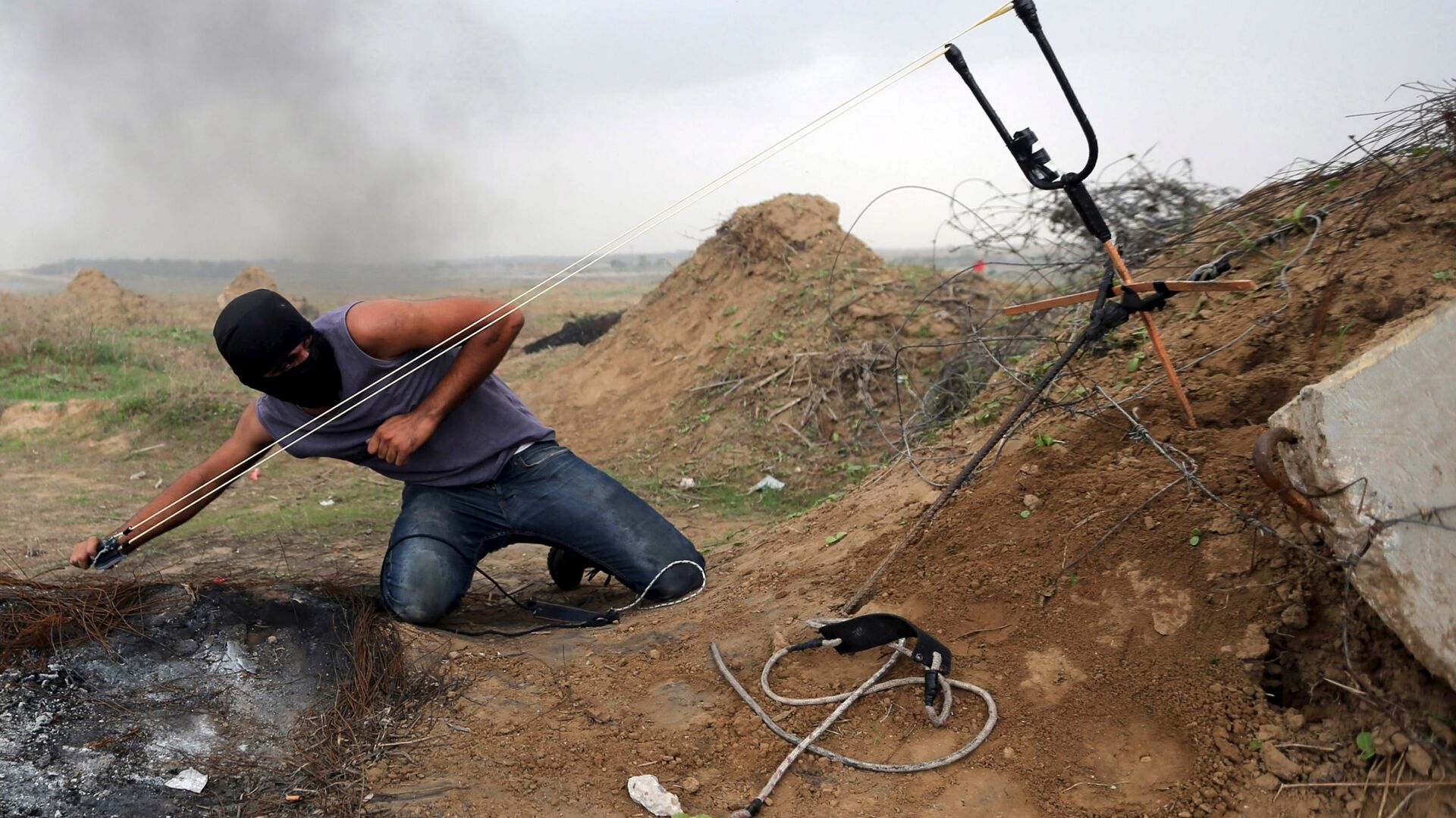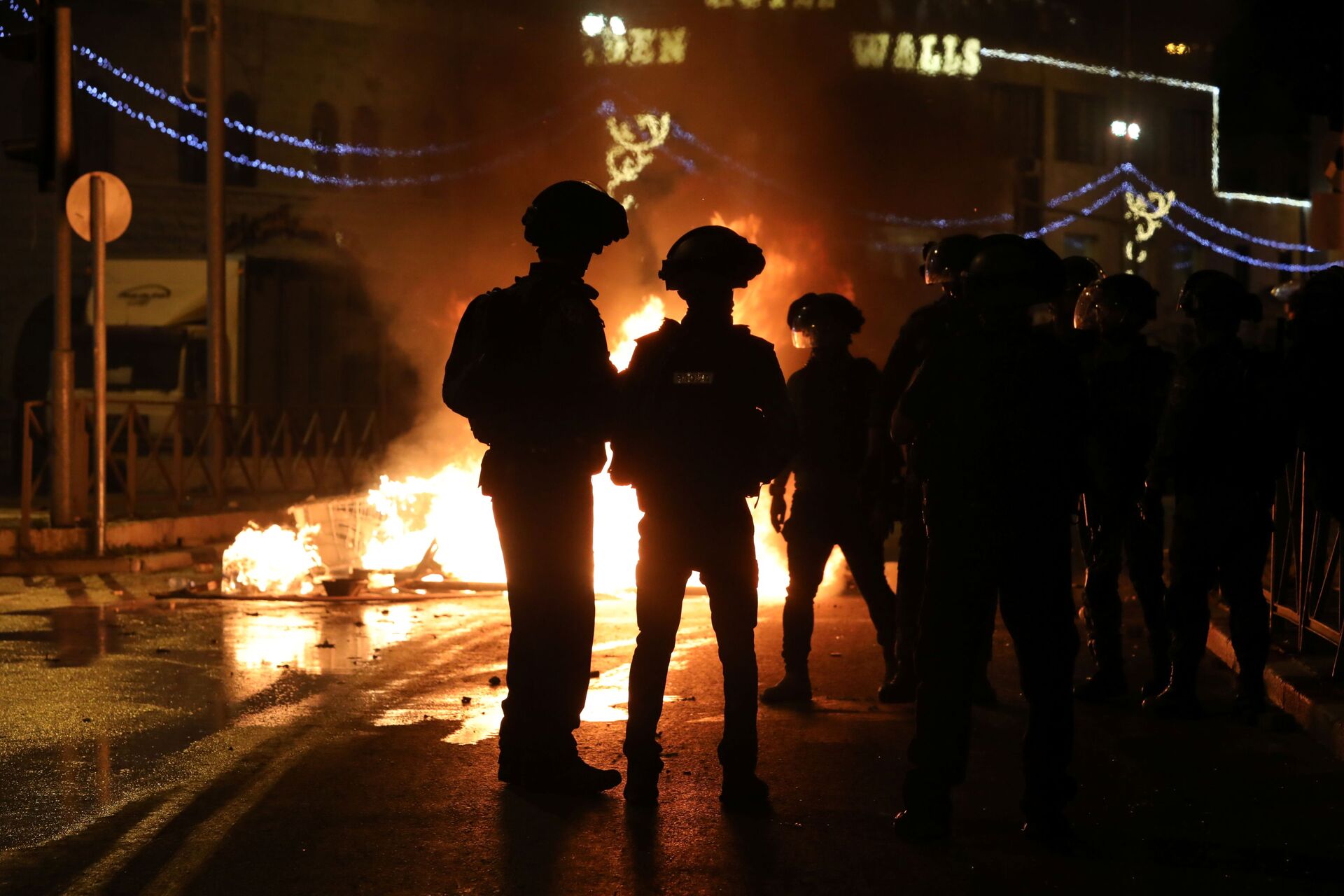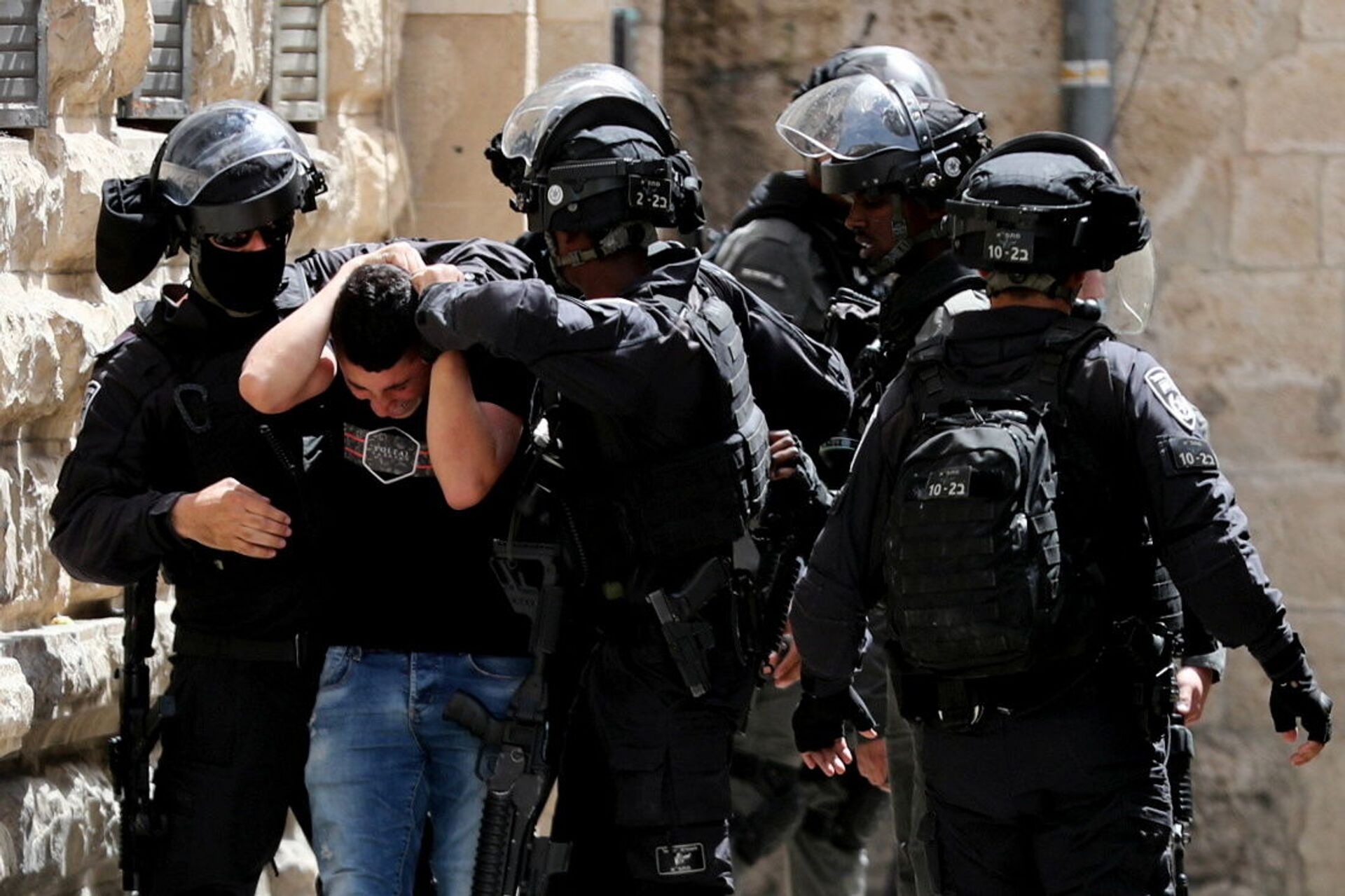https://sputnikglobe.com/20211110/bias--discrimination-whats-behind-surging-crime-rates-among-arabs-in-israel-1090611121.html
Bias & Discrimination? What's Behind Surging Crime Rates Among Arabs in Israel?
Bias & Discrimination? What's Behind Surging Crime Rates Among Arabs in Israel?
Sputnik International
According to the findings of the Israel Democracy Institute, 36 percent of those convicted of crimes in 2019 were Arab Israelis - a figure 1.7 times higher... 10.11.2021, Sputnik International
2021-11-10T06:17+0000
2021-11-10T06:17+0000
2021-11-10T06:17+0000
israel
middle east
arabs
crime rates
https://cdn1.img.sputnikglobe.com/img/103001/81/1030018117_0:110:3251:1938_1920x0_80_0_0_ee7c64949ee6c1b21a6a81fcea24bf90.jpg
Israel has already become accustomed to headlines showing Arab Israeli involvement in organised crime.Since the beginning of the year, 106 Arabs have been murdered, all of them as a result of feuds between gangs. Weapons smuggling and theft has become a regular occurrence, and so have drug dealing and house burglaries.Alarming RatesBut data released by the Israel Democracy Institute (IDI) shows just how serious the situation is.According to their findings, 36 percent of those convicted of crimes in 2019 were Arab Israelis - a figure 1.7 times higher than their share of the population, which currently stands at 21 percent.The situation is particularly dire among minors, with about 40 percent of all convictions coming from the Arab community.Dr Nasreen Haddad Haj-Yahya, a researcher and director of the Arab Society in Israel programme at the IDI, has been researching the issue for years. And she says that the roots of the problem are not only due to "bias and discrimination" against the Arab community, but also "poverty and neglect".Reports suggest that 45 percent of all Arab Israeli families live below the poverty line, in comparison to Jews, where only 13 percent suffer from the same problem. Eight out of the ten poorest municipalities belong to Arabs. Two others are concern the Ultra-Orthodox community.Roots of the ProblemThe researchers claim the problem is particularly acute in mixed cities, home to both Jewish and Arab populations, like Jaffa, Acre, or Lod.Israel's mixed cities suffer from poor public planning, cracks in budgeting, fewer job opportunities, and low cash injections into education or afternoon activities.Law enforcement is also lacking, and the result is, says Haddad Haj-Yahya, that "problems were neglected, drug gangs were allowed to flourish, public order wasn't kept, and people started taking matters into their own hands, something that only encouraged and strengthened the bad elements".In the past, Arab society was able to tackle some of those challenges. The patriarchal structure was strong. The older generation had full control over its youngsters, disputes were often resolved through mediation, not violence, and there was a sense of solidarity, where the upper or middle class catered to the needs of the poorer layers of society.Haddad Haj-Yahya says those values are now largely gone. "There is a growing middle class, that unfortunately distances itself from the weaker groups. Also, there is a lack of social responsibility in Arab society – different from the trends in the 1990s and early 2000s".More Effort Needed?And if this is the case, Israel will need to exert more effort into resolving the problem that has so far taken a heavy toll on society.It was earlier reported that the Israeli security forces have prevented 150 murder attempts.They've arrested more than 500 people involved in arms smuggling and drug dealing, and they have also confiscated assets belonging to criminal circles, dealing a blow to their infrastructure.Yet, the general feeling on the street is that much more is needed.Last Friday, the country's parliament, the Knesset, passed a national budget worth $142 billion for 2022.More than $16 billion will be invested in the Arab communities and their needs, including the tackling of high poverty and unemployment coupled with alarming crime rates. And Haddad Haj-Yahya is optimistic that these, and similar, efforts will finally bear fruit.Experts in Israel are still debating over what exactly needs to be done to flatten the curve and lower crime rates among Arab Israelis, but the expert is certain that the approach to the issue needs to be holistic.
israel
Sputnik International
feedback@sputniknews.com
+74956456601
MIA „Rossiya Segodnya“
2021
News
en_EN
Sputnik International
feedback@sputniknews.com
+74956456601
MIA „Rossiya Segodnya“
Sputnik International
feedback@sputniknews.com
+74956456601
MIA „Rossiya Segodnya“
israel, middle east, arabs, crime rates
israel, middle east, arabs, crime rates
Bias & Discrimination? What's Behind Surging Crime Rates Among Arabs in Israel?
According to the findings of the Israel Democracy Institute, 36 percent of those convicted of crimes in 2019 were Arab Israelis - a figure 1.7 times higher than their share of the population (21 percent). The situation is particularly acute among minors, with about 40 percent of all convictions coming from the Arab community.
Israel has already become accustomed to headlines showing Arab Israeli involvement in organised crime.
Since the beginning of the year,
106 Arabs have been murdered, all of them as a result of feuds between gangs. Weapons smuggling and theft has become a regular occurrence, and so have drug dealing and house burglaries.
But data released by the Israel Democracy Institute (IDI) shows just how serious the situation is.
According to their findings, 36 percent of those convicted of crimes in 2019 were Arab Israelis - a figure 1.7 times higher than their share of the population, which currently stands at 21 percent.
The situation is particularly dire among minors, with about 40 percent of all convictions coming from the Arab community.
Dr Nasreen Haddad Haj-Yahya, a researcher and director of the Arab Society in Israel programme at the IDI, has been researching the issue for years. And she says that the roots of the problem are not only due to "bias and discrimination" against the Arab community, but also "poverty and neglect".
Reports suggest that
45 percent of all Arab Israeli families live below the poverty line, in comparison to Jews, where only 13 percent suffer from the same problem. Eight out of the ten poorest municipalities belong to Arabs. Two others are concern the Ultra-Orthodox community.
The researchers claim the problem is particularly acute in mixed cities, home to both Jewish and Arab populations, like Jaffa, Acre, or Lod.
"Normally, those cities have high concentrations of weak populations. Over the years, these people have been dealing not only with a rise in violence and drugs but also with inadequate public and social services. And very often they were not afforded the assistance other poor populations in Israel access".
Israel's mixed cities suffer from poor public planning, cracks in budgeting, fewer job opportunities, and low cash injections into education or afternoon activities.
Law enforcement is also lacking, and the result is, says Haddad Haj-Yahya, that "problems were neglected, drug gangs were allowed to flourish, public order wasn't kept, and people started taking matters into their own hands, something that only encouraged and strengthened the bad elements".
In the past, Arab society was able to tackle some of those challenges. The patriarchal structure was strong. The older generation had full control over its youngsters, disputes were often resolved through mediation, not violence, and there was a sense of solidarity, where the upper or middle class catered to the needs of the poorer layers of society.
Haddad Haj-Yahya says those values are now largely gone. "There is a growing middle class, that unfortunately distances itself from the weaker groups. Also, there is a lack of social responsibility in Arab society – different from the trends in the 1990s and early 2000s".
And if this is the case, Israel will need to exert more effort into resolving the problem that has so far taken a heavy toll on society.
They've arrested more than 500 people involved in arms smuggling and drug dealing, and they have also confiscated assets belonging to criminal circles, dealing a blow to their infrastructure.
Yet, the general feeling on the street is that much more is needed.
More than
$16 billion will be invested in the Arab communities and their needs, including the tackling of high poverty and unemployment coupled with alarming crime rates. And Haddad Haj-Yahya is optimistic that these, and similar, efforts will finally bear fruit.
"First of all, there is a growing feeling of trust between the establishment and citizens – and this could be the basis for everything else", she said. "And, secondly, it feels as if the current government is more attentive to the needs of the Arab population, and does want to make a change".
Experts in Israel are still debating over what exactly needs to be done to flatten the curve and lower crime rates among Arab Israelis, but the expert is certain that the approach to the issue needs to be holistic.
"It is not just recruiting additional policemen and building more police stations. We need to be investing in early childhood, formal and informal education, housing, strengthening the social services, as well as specifically investing in mixed cities".
"We have to remember that decades of neglect won't be resolved overnight. It will necessitate working together – government, civil society, and Arab leadership – and it will take time to see results".




